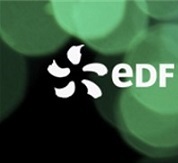A proposal to go beyond the rebound effect: how to evaluate the financial value of comfort after retrofitting?
Résumé
Evaluation of energy savings of retrofitting programmes are relativized due to the rebound effect. Moreover, their economic relevance (i.e. NPV calculation) is questioned because of the discouraging paybacks. The underlining question of both problems is missing consideration of comfort improvement, often hidden behind the concept of rebound effect. Yet, it can be considered that some potential energy savings in an initially uncomfortable dwelling are assigned to achieving decent comfort. In this case, the household sets aside some of the potential savings to improving thermal comfort and thus part of the rebound effect is simply to catch up. It therefore imports to distinguish within the so-called rebound effect between the share of legitimate comfort improvement and the energy "wastage". We propose an approach embodied in a formula to monetize the comfort catch-up relying on the comparison of ex-ante and ex-post energy savings. This approach has been applied to regional energy efficiency programmes consisting for each participant to the realisation of one to two energy efficiency measures concerning insulation and/or heating equipment of his housing. These cases study are located in 3 different regions with different climates (oceanic, continental and Mediterranean). After refur-bishment, we evaluate the level of comfort catch up according to the set-temperature and the difference between the real consumption and its potential value at a conventional set-temperature. The methodology turned out to be quite easily applicable providing that some essential data are available (energy consump-tions and set-temperatures before and after retrofit). Quantitative results of comfort catch up are in the same order of magnitude of energy savings.
Domaines
Environnement et Société
Origine : Fichiers éditeurs autorisés sur une archive ouverte
Loading...

